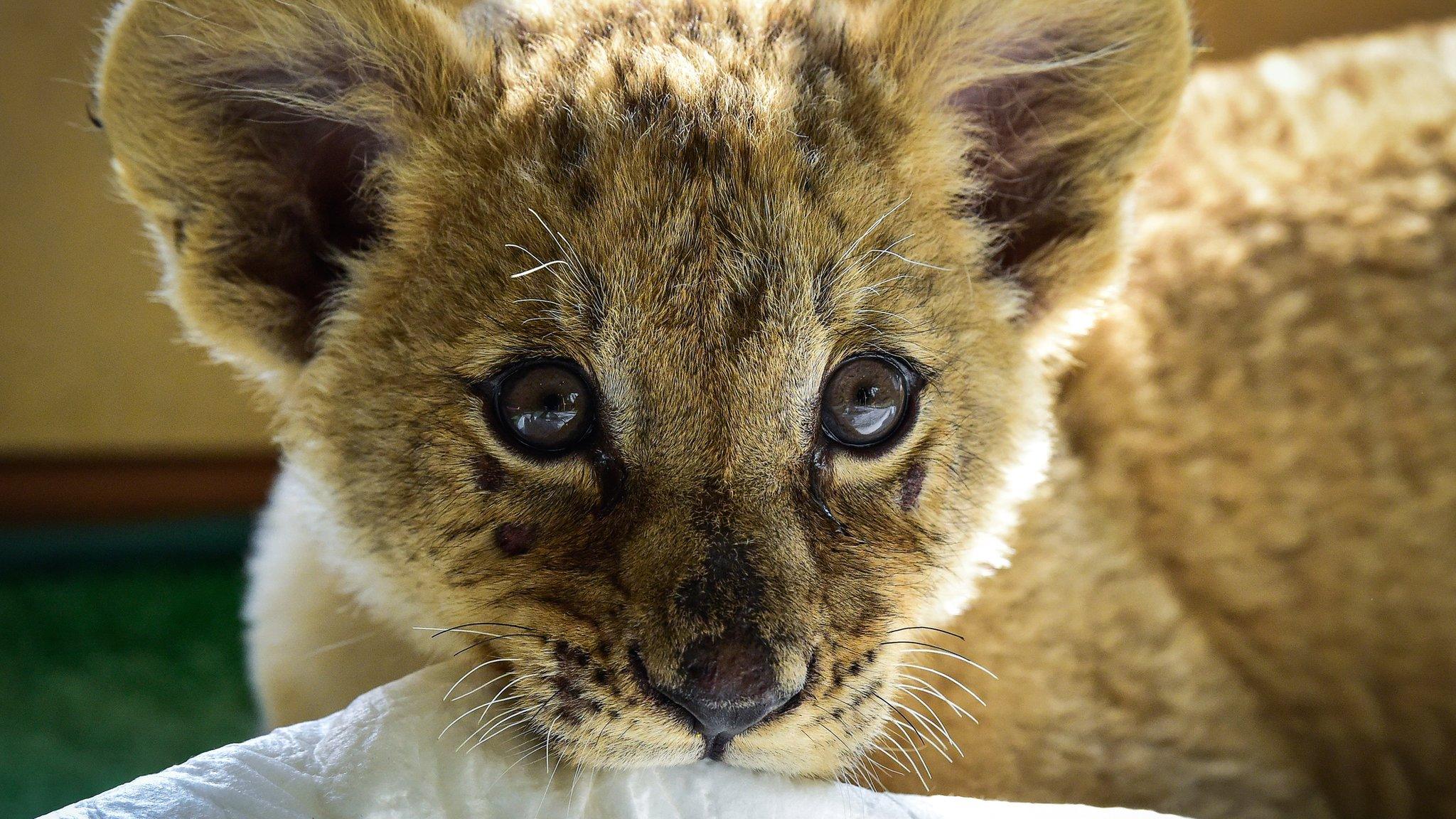Strelley big cat keeper wins planning battle for lion enclosure
- Published
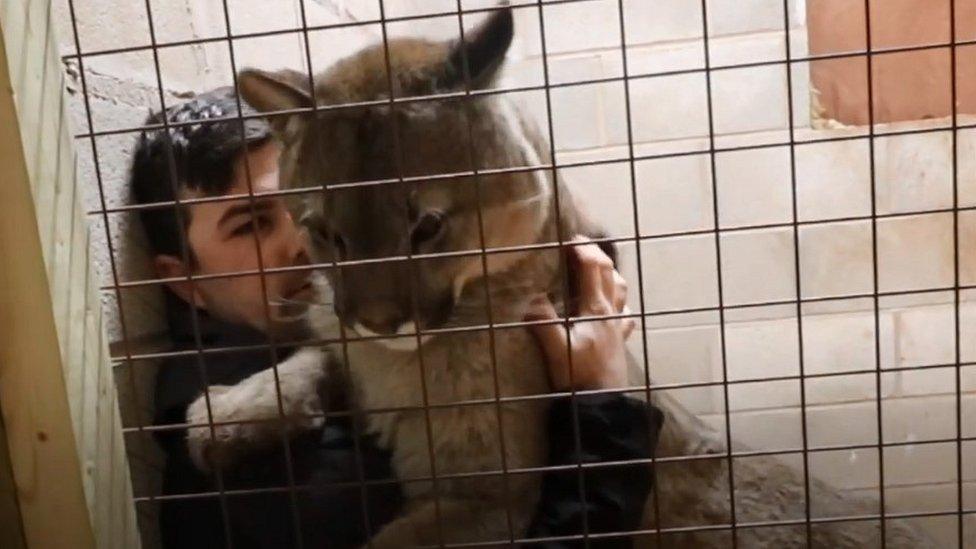
Reece Oliver and the puma appeared on a BBC Nottingham video several months ago
A man has won a battle to keep two lions and a puma, which he "loves like children", in a village.
Reece Oliver had built an enclosure for the animals on green belt land in Strelley, Nottinghamshire, without planning permission.
Mr Reece claimed the animals would have faced being put down if he had lost.
Despite planning officers advising refusal, councillors backed it, citing limited visual impact and lack of alternative homes for the animals.
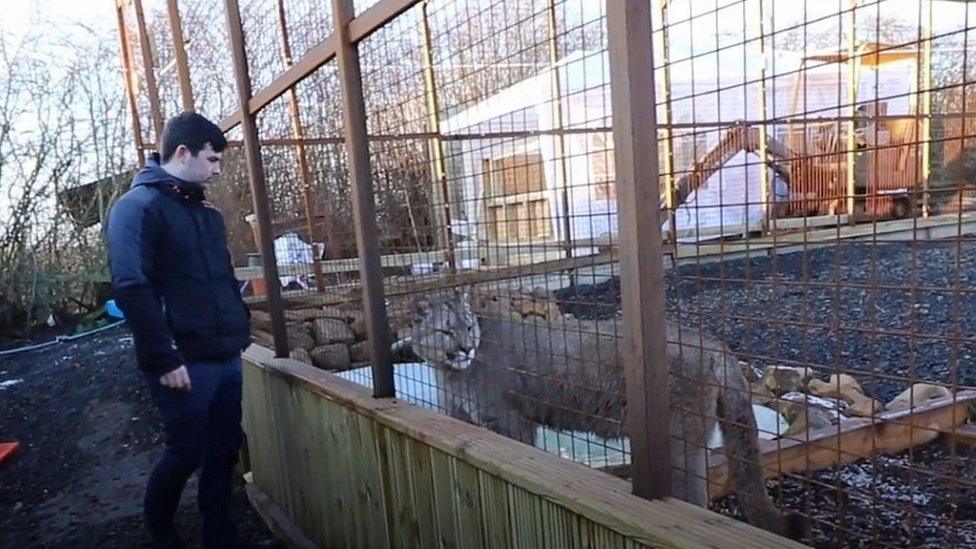
Mr Oliver said the enclosures had been built to the highest standards
Several letters of support and a petition were handed to the committee shortly before the meeting started.
Broxtowe Borough Council also received an offer from the Born Free Foundation, a charity which campaigns to keep animals out of captivity, to take the lions into its care.
There were apparently no offers to take the puma, which Mr Oliver adopted from a UK shelter, external that could no longer keep it.
Mr Oliver rescued the lions from a circus abroad.
The application was passed by seven votes to five with Labour, Liberal Democrat and independent councillors voting in favour and Conservatives against.
The Local Democracy Reporting Service said as the result was read out, Mr Oliver, who is fully licensed to own big cats, punched the air in the public gallery.
Speaking after the meeting, he said his heart had been going "at a million miles an hour", and he had thought he would lose the animals.
He said: "It's the best feeling in the world, it's the best result ever.
"I love those animals, they're like children to me. It would have been like taking my children off me."
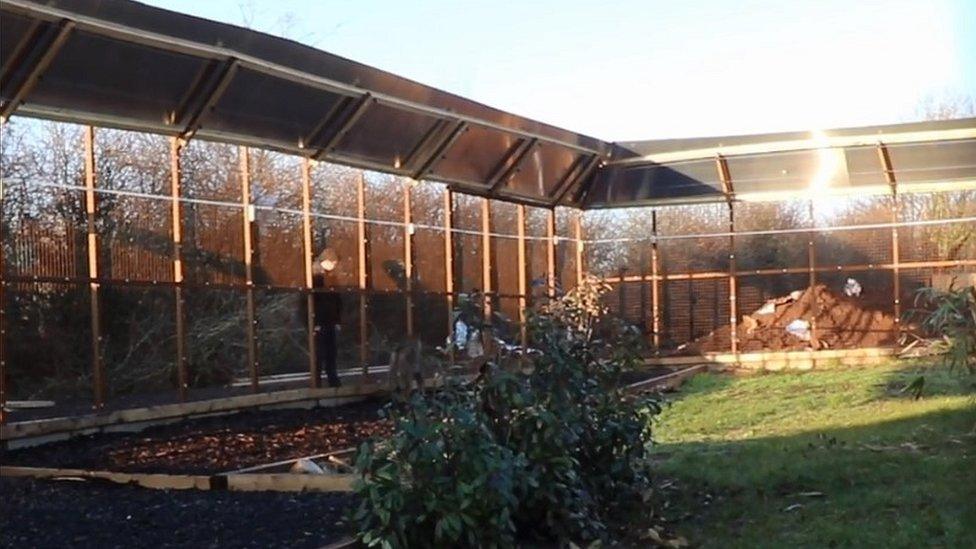
The council said the enclosures were hidden from public view
Dr Chris Draper, from the Born Free Foundation, said: "The animals do not fare well in private hands, they are not adapted to living in a domestic environment, in back gardens or on farms."
In a statement, the council said: "Government guidance is clear that inappropriate development in the green belt must only be permitted in very special circumstances.
"The committee felt this was warranted on this occasion due to the limited visual impact of the development, combined with the lack of alternative provision for the animals."
The authority emphasised this permission was limited to the lifetime of the three animals currently held.

Follow BBC East Midlands on Facebook, external, Twitter, external, or Instagram, external. Send your story ideas to eastmidsnews@bbc.co.uk, external.
- Published21 January 2019
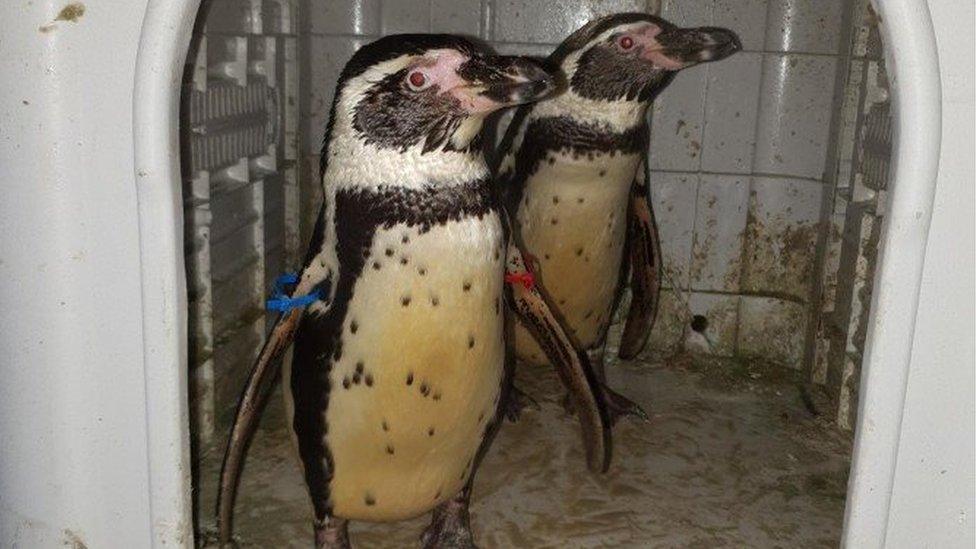
- Published26 October 2018
